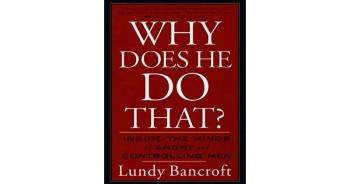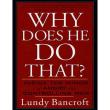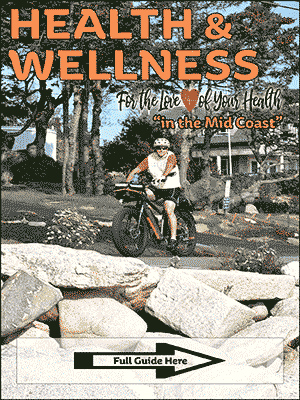Finding Our Voices: The conversation expands
Finding Our Voices Founder and President Patrisha McLean has been shining a bright light on domestic violence by first coming forward as a survivor and speaking out about her own experience. By reclaiming her voice, McLean encouraged other women to come forward into the light to share their experiences with the public, particularly women still in abusive relationships.
Knowing how controlling an abuser can be, and committed to breaking the silence of domestic abuse, McLean created “Women In Windows.” This was an awareness campaign of a different kind: photographs of Maine survivors, including her, appeared on 2-foot x 4-foot posters. Each woman chose an action by her abuser taken from their Power and Control Wheel.
The Wheel, developed by the Domestic Abuse Intervention Project in Duluth, Minnesota, is used to diagram the tactics abusers use to exert power and control over their victims. As stated on the hotline.org: “The inside of the wheel is made up of subtle, continual behaviors over time, while the outer ring represents physical and sexual violence. Abusive actions like those depicted in the outer ring often reinforce the regular use of other, more subtle methods found in the inner ring.”
Each of the 43 Maine survivors, ranging in age from 18-82, are putting themselves out there to let women still trapped in abusive situations know they are not alone and there are resources out there to help them – such as Finding Our Voices. The posters also educate the public about how widespread domestic violence is.
Finding Our Voices received national recognition and the Purple Ribbon for “Outstanding Awareness Campaign,” the Let’s Talk About It/Women in Windows posters and “Best Awareness Event” for the October 2020 online art auction fundraiser that raised $15,000 from Domesticshelters.org
And in August, FOV received national recognition for its bookmarkers, smaller versions of the posters. More than 25,000 have been distributed over the past two years to police stations for their domestic violence calls, food pantries, doctor’s offices, libraries and bookstores, hair salons, and other locations.
McLean has worked with schools to provide information for youth living with domestic abuse with the Love/Not Love campaign for grades K-12. And high schools across the state now have the posters on display. The “Say Something” posters were distributed in time for the national February observance of Teen Dating and Violence Awareness Month. Said McLean, “Some of the survivors on our posters were 14 or 15 when they met the intimate partner who terrorized them and their families for decades.”
Wherever she goes, photojournalist and human rights activist McLean meets women – or the family or friends of someone they know, or suspect, are living in an abusive situation. Breaking the silence about domestic violence is at the core of FOV’s mission.
In addition to the website, https://findingourvoices.net, McLean hosts the podcast Finding Our Voices (https://apple.co/3TwrFrq) and the talk show “Let’s Talk About It: Conversations with Survivors of Domestic Abuse” on WERU.
Three years ago, McLean and another survivor, Mary Lou Smith, began offering a book club for female inmates at Windham Prison. The first year, the program was offered via Zoom. Maine Humanities Council bought 100 copies of “Why Does He Do That: Inside the Minds of Angry and Controlling Men” by Lundy Bancroft, for FOV for the book club. Survivors featured on the FOV posters write encouraging messages inside each book. Related to this book club, FOV facilitates interested incarcerated women to become certified as victim advocates who lend the books as part of peer-to-peer counseling.
Amanda Woolford, director of the Women’s Center at Windham Prison, said when McLean contacted her about the book club she was in support of the idea.
“As long as Patrisha wants to keep coming back, our door is always open. She has been so generous with her time and made such an impact and bond with these women,” said Woolford. “We also are probably at a point where we could run the book group completely peer run. However, I think having Patrisha there in some form really helps take the shame out of being a survivor. Knowing it can happen to anyone, really resonates with the population.”
Woolford has worked at the prison more than 11 years and said hundreds of women have spoken up about their experience with domestic violence.
“Because it’s so prevalent we have always had resources in our facility to help address DV and create safety,” Woolford said. “I think the difference with Patrisha and her book club, is a level of credibility, with her being a strong, outspoken, survivor herself. It’s a different conversation altogether, when the women sit down with her. It’s common ground.”
The effects of the book club on the women at the prison begins with an increased level of confidence they gain after coming forward, finally seeing themselves as survivors.
“There is a releasing of shame, guilt and humiliation when they can finally accept that they didn’t deserve what happened to them,” said Woolford. “It was never ‘what is wrong with you’ it’s ‘what happened to you.’ Changing the narrative changes their perception of themselves. You should see these women fly with a little bit of self esteem – it’s awesome to watch.”
Woolford believes this approach – this kind of educating and the conversation it inspires – is vitally important: “Without it, the women will keep the shame they have been carrying. And with that, the perpetrator still has a grip – on their minds. Education and a reinforced message that those actions were never OK and never deserved, helps release that grip and the healing can begin.”





























